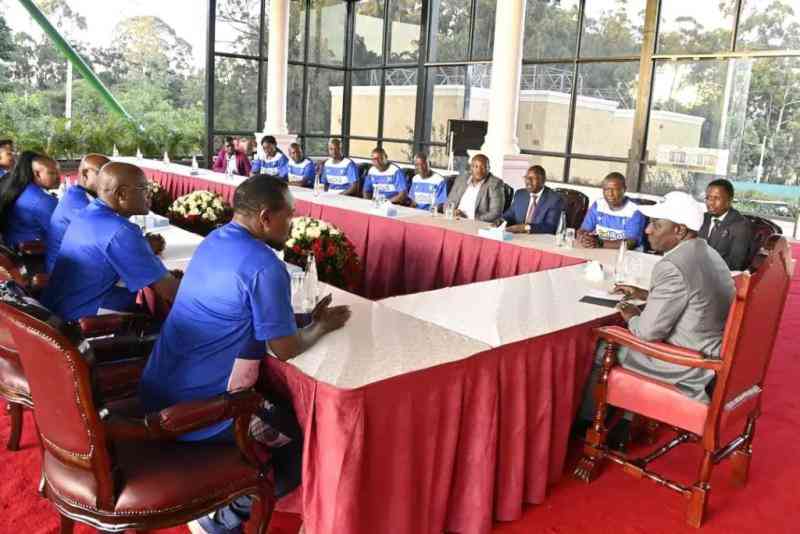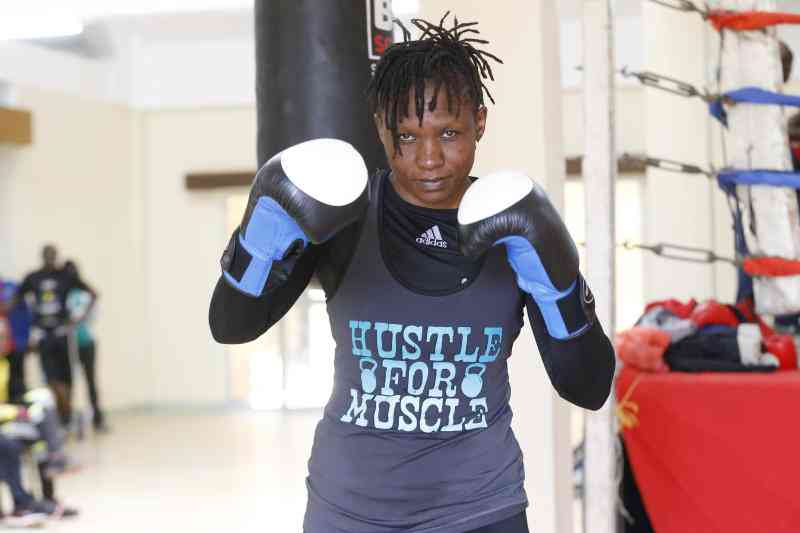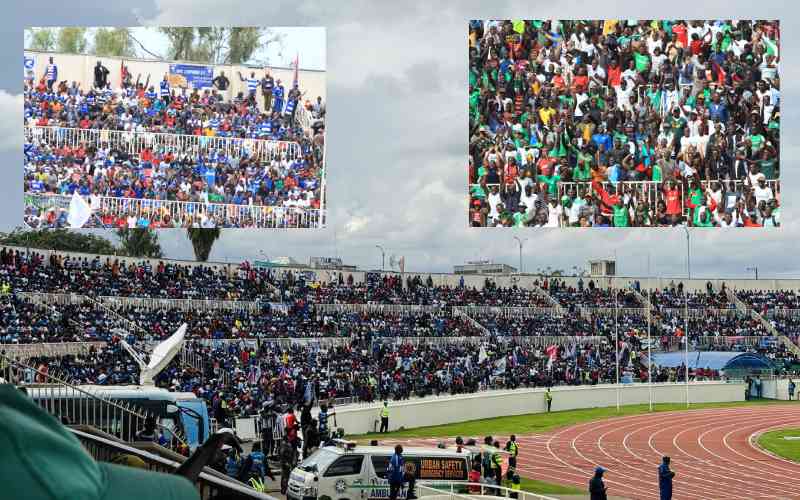 |
|
Members of the table tennis team at Dadaab Talent Academy. [Photo: Oscar Pilipili/Standard] |
By Oscar Pilipili
Garissa, Kenya: If you are a girl and live in northern Kenya, you may have to suppress your sports talent. The culture and religion of the communities living here advocate against participation of girls in vigorous activities like sports.
Consequently, massive talent in the region remains untapped. The girls also miss out on scholarships offered by the United Nations Children Education Fund (Unicef) and the Government through talent development programmes.
A recent visit by The Standard to Dadaab Talent Academy (DTA) and Dagahaley High School in Garissa County revealed that the two factors strongly deter participation of girls in sports.
Somali population
The dominant Somali population in the region, which is largely Muslim, perceives sports as a preserve of men.
In 2012, out of 100 youth who attended DTA training, only three were girls.
And in 2013, DTA trained 98 students (85 boys and 13 girls) of whom 27 were drawn from the refugee camps.
Several talented girls in Dadaab now watch from the periphery as boys freely participate in games.
The good news is that DTA has now found a way round this problem and has come up with a girls-only facilities.
The first is a table tennis hall accessed by girls only.
Nazir Shukri, the captain of the tennis team says: “The society doesn’t give a chance to girls to play but we believe all will be well. Our school has embarked on the creation of enclosed facilities for girls-only sports and fans. We are so happy that now we can also play,” she says.
Our culture
Zamzam Abdi, a member of the tennis team, reckons: “According to our culture, men are the only ones who are allowed to participate in sports and not women.”
Zamzam says the jerseys used in sports such football and volleyball are a big issue because they expose the body, which is against Islamic and cultural practices.
With football and volleyball being main disciplines at DTA, there is no doubt that boys are the main beneficiaries of scholarships.
The same condition is replicated at Dagahaley High School that admits refugee students.
Hodan Abdulahi, a refugee from Somalia, is unhappy with this situation.
“Girls have the talent but they don’t have sacred places to play. If boys see girls playing, they think that we don’t have dignity in the community,” she says.
Hodan is such a volleyball fanatic that she led a campaign that saw girls join the volleyball team at the DTA in Dagahaley. The team is made up of Josephine Daniel, Scovia Daniel, Mary Nyoka and Zainabu Kassim.
“The community does not understand that sports can change the livelihood of the youth and can be used in conflict resolution,” says Hodan.
Hodan, a Form Four student, opines that sports should be incorporated in festivals to sensitise the community.
“Event organisers should not only look at activities such as conflict resolution as the only forum to educate the community. Sports should be part of such forums,” she suggests.
She says that the existence of DTA has enhanced the integration and cohesiveness of refugees and the Somali host community.
“Before the DTA programme, the refugees and community were suspicious of each other but now we’re friends,” she explains.
Daniel believes that sport is the key to growth of a community and promotion of culture.
“Sports provide opportunity for cultural integration and professional support for people while preserving the same culture,” she says.
For Fatuma, participation of girls in sports remains a big challenge in Northern Kenya.
“My culture and religion are closely related and both are opposing girls’ participation in sports activities in public places,” she says.
Despite the challenges, the future is bright for girls’ sports in Dadaab.
Unicef has donated Sh5.1 million to DTA to jumpstart the talent development programme for in and out of school adolescents.
The academy is in the process of constructing enclosed facilities to accommodate girls in the programme.
“DTA is working on introducing less vigorous sports and other activities which will be acceptable to the community,” says Omar Bagas, the academy’s principal.
The principal says the introduction of table tennis, which is considered a less vigorous sport, led to an increase of participants from three to 13 girls in two years.
Sports scholarships
National Youth Talent Academy Chief Executive Officer Douglas Ratemo advised DTA to venture into other sports that will allow the girls to benefit from scholarship.
“There are ways we can involve girls in sports without infringing on the culture of anyone,” he says.
Assistant Director in the Ministry of Education in charge of Talent Academies Eliud Wambua says: “We’re very much aware of the issues surrounding Dadaab and we believe that girls must be given the opportunity to showcase what Allah or God gave them.”
 The Standard Group Plc is a multi-media organization with investments in media
platforms spanning newspaper print operations, television, radio broadcasting,
digital and online services. The Standard Group is recognized as a leading
multi-media house in Kenya with a key influence in matters of national and
international interest.
The Standard Group Plc is a multi-media organization with investments in media
platforms spanning newspaper print operations, television, radio broadcasting,
digital and online services. The Standard Group is recognized as a leading
multi-media house in Kenya with a key influence in matters of national and
international interest.
 The Standard Group Plc is a multi-media organization with investments in media
platforms spanning newspaper print operations, television, radio broadcasting,
digital and online services. The Standard Group is recognized as a leading
multi-media house in Kenya with a key influence in matters of national and
international interest.
The Standard Group Plc is a multi-media organization with investments in media
platforms spanning newspaper print operations, television, radio broadcasting,
digital and online services. The Standard Group is recognized as a leading
multi-media house in Kenya with a key influence in matters of national and
international interest.










